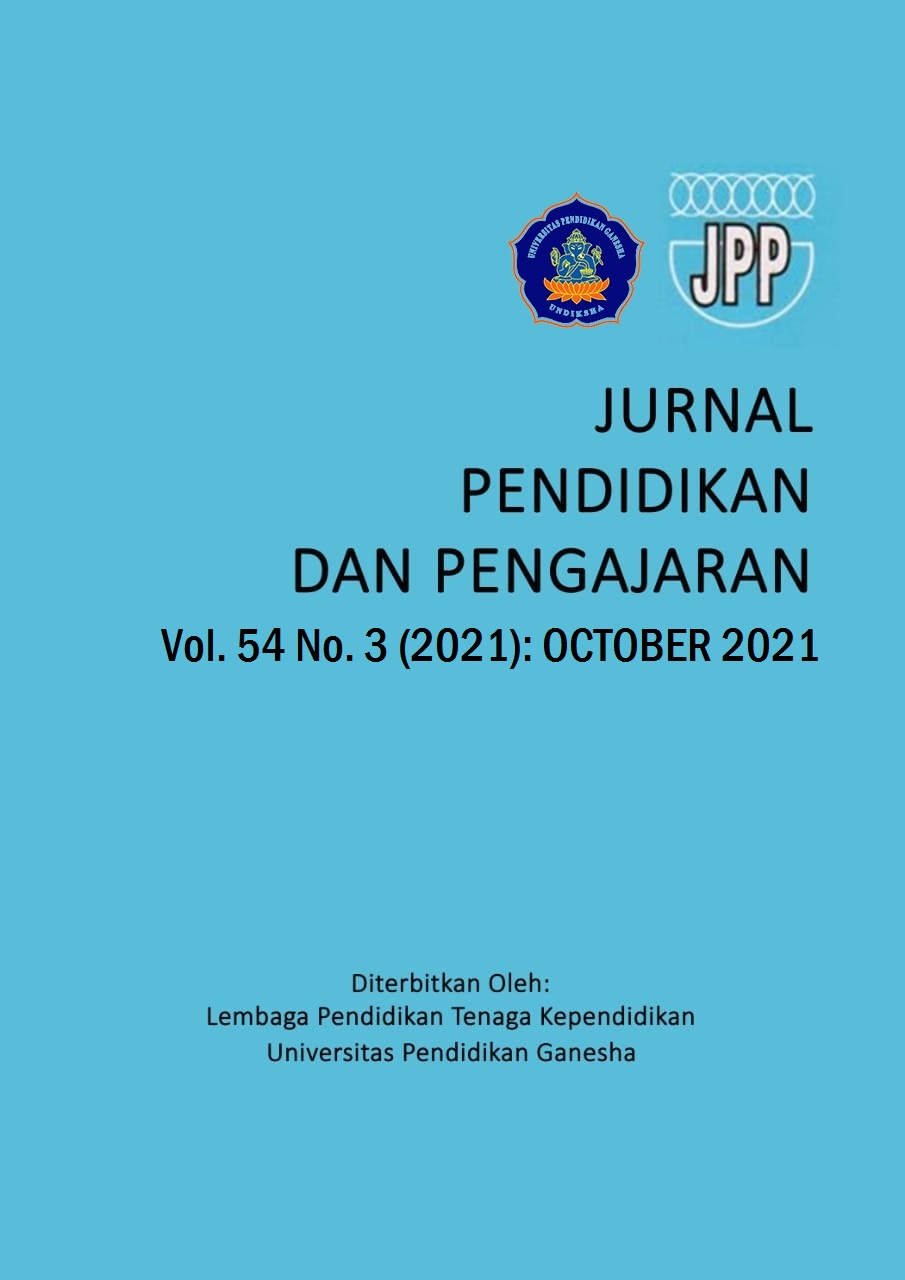Cultural Integration on Students' Productivity During Distance Learning
DOI:
https://doi.org/10.23887/jpp.v54i3.38924Kata Kunci:
culture, character, productivity, studentsAbstrak
This study aims to measure the effectiveness of cultural integration on the productivity of Mathematics and Natural Sciences students during the implementation of distance learning. The culture integrated into this research is a habit that becomes a society's tradition in behaving. The research problem is about the integration of culture on character formation, which impacts student productivity. The study used mixed methods with quantitative data from questionnaires and qualitative data from interviews and document analysis. The research targets are 344 students filled out the questionnaire. After the questionnaire data was analyzed, it was deepened through interviews. The relationship test between character strengthening and students' productivity obtained a correlation coefficient value of 0.59, indicating that the correlation between variables is quite strong. Internalization of cultural values into forming students' characters in distance lectures and activities is carried out through habituation. The selection of online application media refers to the ease of access, students' common use, and ease of operation. The research concludes that students' characters contribute to building students' self-awareness to be productive.
Unduhan
Diterbitkan
Cara Mengutip
Terbitan
Bagian
Lisensi
Authors who publish with Jurnal Pendidikan dan Pengajaran agree to the following terms:- Authors retain copyright and grant the journal the right of first publication with the work simultaneously licensed under a Creative Commons Attribution License (CC BY-SA 4.0) that allows others to share the work with an acknowledgment of the work's authorship and initial publication in this journal
- Authors are able to enter into separate, additional contractual arrangements for the non-exclusive distribution of the journal's published version of the work (e.g., post it to an institutional repository or publish it in a book), with an acknowledgment of its initial publication in this journal.
- Authors are permitted and encouraged to post their work online (e.g., in institutional repositories or on their website) prior to and during the submission process, as it can lead to productive exchanges, as well as earlier and greater citation of published work. (See The Effect of Open Access)





